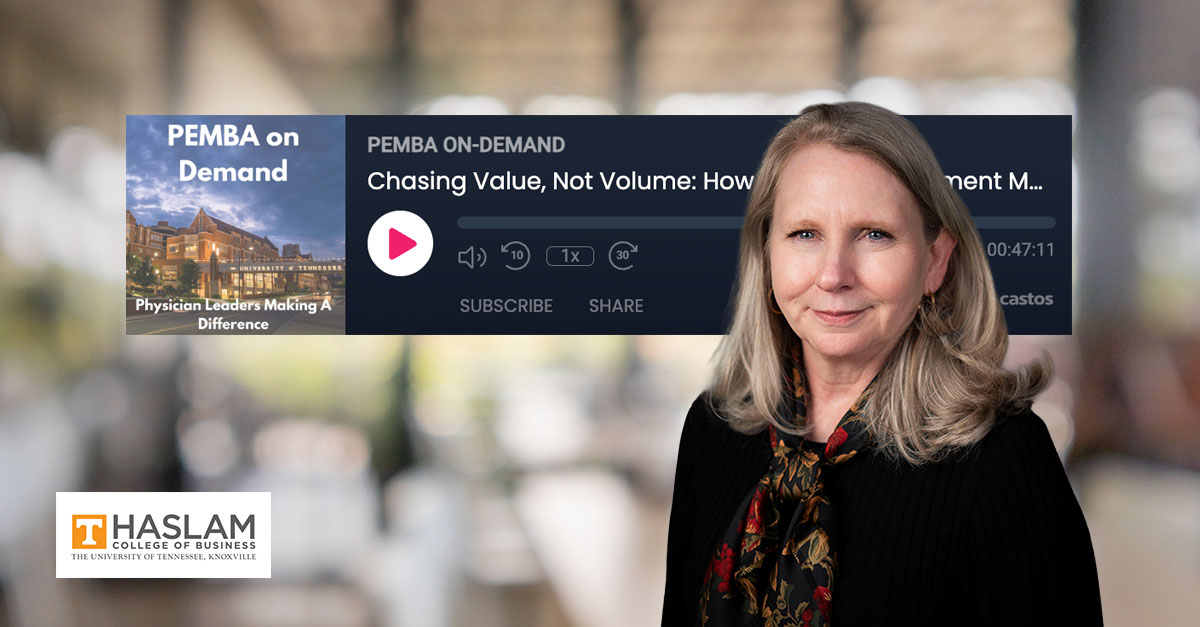Martie Ross, Managing Principal and Director of the PYA Center for Rural Health Advancement, is the featured speaker in a national podcast, PEMBA on Demand, hosted by the University of Tennessee, Knoxville, Haslam College of Business (Haslam).
During the July 24 episode, “Chasing Value, Not Volume: How Alternative Payment Models Are Reshaping Medicine,” Ross and series host, Dr. Norman Chapin, discuss alternative payment models (APMs), payer alignment, and value-based care. They also examine APMs specifically for rural health providers and assess the unique advantages and disadvantages rural providers have when implementing these models to provide better, more affordable care.
Because rural hospitals and clinics traditionally operate through a continuum of care, Ross says, rural providers are accustomed to working collaboratively with urban providers, a necessary component to achieve the efficiency APMs can provide.
“I think rural providers are embracing the clinical transformation component of alternative payment models,” Ross says. “They want to do the work of identifying evidence-based practices. They are eager for that level of engagement.”
Additionally, Ross and Chapin discuss
- Role of the Affordable Care Act in transforming healthcare payment structures
- Differences between primary care and specialty care in APM development
- Accurate data and benchmarks in evaluating APM effectiveness
- Barriers to commercial payer engagement in APMs
- Future directions for APMs, including mandatory episode payment models
- Strategies for physician executives to navigate the transition to value-based care
The PEMBA on Demand podcast is part of Haslam’s Physician Executive MBA (PEMBA) program. The biweekly series focuses on leadership, innovation, career development, and the business of medicine for physician leaders.
Learn more!
- Watch PYA’s recent webinar, Let’s Get Rural – Navigating New Rules, Risks, and Reforms in Rural Healthcare.
- Read PYA’s point of view about the need to rebalance the margin equation.
- Read about healthcare performance transformation.
- Learn about the PYA Center for Rural Health Advancement.
Ross and other PYA executives are committed to providing customized solutions for rural providers in pursuit of data-driven and locally informed transformation to preserve access to high-quality essential services.




